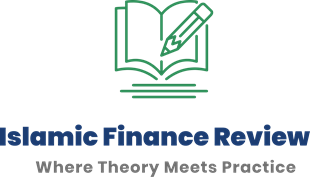
Blockchain and Smart Contracts: A New Era for Shariah-Compliant Finance
- Post by: wp-islamicfinancereviewcouk
- June 1, 2025
- No Comment
Introduction
Blockchain in Islamic finance is revolutionizing how ethical, Shariah-compliant transactions are conducted in today’s digital economy. As digital transformation redefines global financial systems, Islamic finance is also witnessing a significant evolution. Emerging technologies like blockchain and smart contracts are not only reshaping the architecture of financial services but are also uniquely compatible with Shariah principles. These tools offer the potential to improve transparency (al-ṣidq), reduce uncertainty (gharar), and enforce trust-based (amanah) transactions—fundamental pillars of Islamic economic jurisprudence.
This blog explores how blockchain and smart contracts are revolutionizing the Islamic finance ecosystem, offering scalable, ethical, and tech-driven solutions that align with both modern digital expectations and timeless Islamic values.
How Blockchain in Islamic Finance Enables Smart Contracts
Blockchain is a decentralized, tamper-proof digital ledger where each transaction is recorded in a chronological and immutable way. Its distributed nature eliminates the need for central authorities and intermediaries.
Smart contracts are self-executing programs stored on blockchain networks that automatically trigger outcomes when pre-defined conditions are met. These contracts cannot be altered once deployed, ensuring consistency and enforceability.
“O you who believe! Fulfil (all) obligations…”
— Surah Al-Ma’idah (5:1)
This foundational command in the Qur’an affirms the sanctity of contracts—a principle that smart contracts naturally uphold by design.
Shariah Alignment of Blockchain Technologies
Islamic finance prohibits riba (interest), gharar (excessive uncertainty), and maysir (speculation). Blockchain-based systems have features that inherently counteract these prohibitions:
| Islamic Finance Principle | How Blockchain Supports It |
|---|---|
| Transparency (al-ṣidq) | All transactions are publicly auditable and time-stamped |
| Trust (amanah) | Immutable recordkeeping and consensus verification |
| No Gharar | Smart contracts automate terms and reduce ambiguity |
| Risk Sharing | Enables new asset structures like tokenized Musharakah |
Real-World Use Cases in Islamic Finance
1. Tokenized Sukuk on Blockchain
Sukuk (Islamic bonds) are being restructured using blockchain technology, allowing for fractional ownership, improved liquidity, and reduced cost of issuance.
-
Case Example: The Dubai-based Securitisation Platform and Emirates Islamic Bank have both piloted blockchain-based sukuk issuance.
-
These platforms ensure traceable, contract-bound asset backing—meeting both AAOIFI standards and market efficiency.
2. Zakat, Waqf, and Sadaqah Distribution
Charitable giving and endowments are vital aspects of Islamic finance. Blockchain ensures efficient, traceable, and need-based disbursement of funds, reducing misuse and enhancing donor confidence.
-
Platform Spotlight: WaqfChain uses blockchain to create smart waqf endowments where distribution rules are coded and transparent.
“Indeed, Allah commands you to render trusts to whom they are due…”
— Surah An-Nisa (4:58)
3. Halal Supply Chain and Trade Finance
Smart contracts automate the verification of halal certifications and product origins across the supply chain, reducing fraud and improving traceability.
-
Example: OneAgrix and HalalChain are two platforms integrating blockchain to secure halal food supply chains across borders.
Advantages of Blockchain for Islamic Financial Institutions
-
🔐 Shariah Compliance Automation: Conditions like no riba, asset-backing, and ethical contract terms can be embedded into smart contract logic.
-
💸 Lower Costs: Eliminates intermediaries and reduces administrative expenses in financing and remittances.
-
🌍 Financial Inclusion: Facilitates microfinance, P2P lending, and zakat-based platforms for the unbanked and underbanked.
-
📜 Fatwa Verification & Audit Trails: Shariah boards can access real-time audit trails, improving governance and compliance.
Challenges and Ethical Concerns
While promising, blockchain implementation in Islamic finance must address:
❗ Jurisprudential Ambiguities
-
Who bears liability when a smart contract executes erroneously?
-
How is intent (niyyah) verified in an automated system?
❗ Regulatory Limitations
-
Many jurisdictions lack specific legislation around smart Islamic finance.
-
Regulatory sandboxes like Bahrain’s CBB and Malaysia’s SC are promising but still developing.
❗ Fatwa Standardisation
-
Divergent views exist among scholars on digital currencies, tokens, and contract structures.
-
Need for AAOIFI or IFSB to issue global guidelines.
A Vision for the Future
As blockchain adoption grows, Islamic finance institutions can play a leading role in shaping ethical finance worldwide. With increasing demand for transparency and sustainability, Shariah-compliant financial products powered by blockchain can serve as a moral alternative to conventional fintech.
Imagine a future where:
-
A small investor in Indonesia purchases sukuk tokens from a clean energy project in Nigeria.
-
A zakat donor in the UK sees every penny allocated in real time via blockchain.
-
Micro-entrepreneurs across the Muslim world access halal loans without banks or bureaucracy.
That future is not fiction—it is in progress.
The Prophet Muhammad ﷺ said:
“The honest and trustworthy businessman will be in the company of the Prophets, the truthful, and the martyrs.”
— Tirmidhi, Hadith 1209
✅ Call to Action
Let’s build a future where faith meets function, and technology serves trust. Follow our Revolutionizing Islamic Finance series for more insights and join the movement.
Use hashtags: #HalalFinance #ShariahTech #IslamicBlockchain #FaithBasedFinance
🔗 Further Reading & External Resources
📌 Next in the Series
Stay tuned for Part 5: “Islamic Neobanks and the Future of Faith-Driven FinTech”
